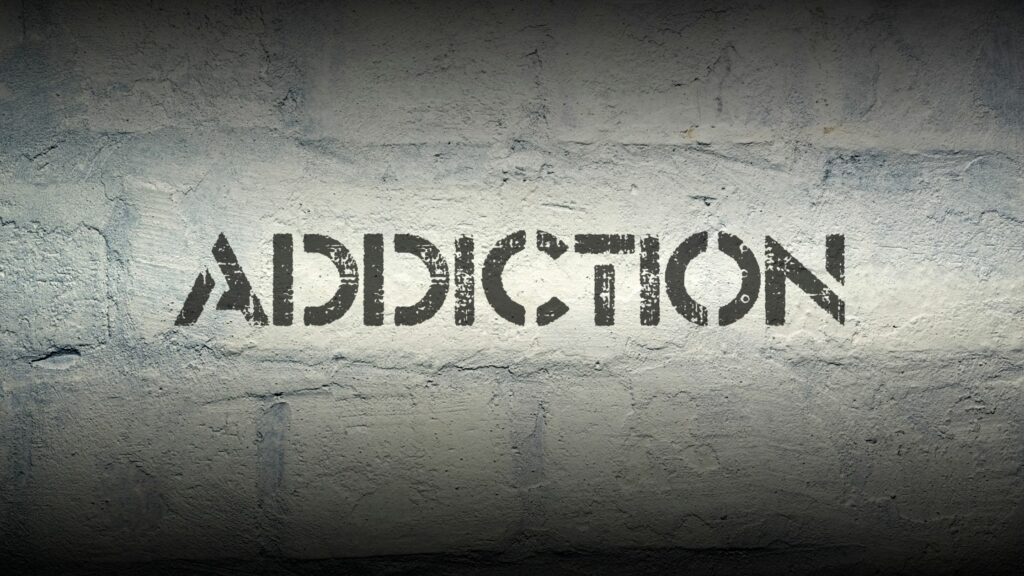Do you feel like you’re stuck in a never-ending cycle of obsessive thoughts and compulsive behaviors? If so, you’re not alone. OCD and addiction can be incredibly difficult to overcome on your own. However, with the help of a trained professional, you can learn how to manage your obsessions and addictions and reclaim your life. In this blog post, we will discuss the link between OCD and addiction, as well as some of the best ways to overcome these disorders.
Contents
What Does Addiction Mean?

Addiction is a term that is often used to describe different types of compulsive behaviors. These can include substance abuse, gambling, sex, eating, shopping, and many other activities. Addiction is characterized by an inability to control one’s impulses or stop engaging in the behavior despite negative consequences. For many people, addiction becomes a way to cope with underlying issues such as trauma, anxiety, or depression.
What Does OCD Mean?
OCD is an anxiety disorder that manifests in obsessions and compulsions. Obsessions are intrusive, unwanted thoughts, images, or urges that cause distress. Compulsions are repetitive behaviors or mental acts that a person feels compelled to do in order to ease their anxiety. OCD can be a debilitating condition that interferes with a person’s ability to function in their daily lives.
What Are The Similarities Between OCD And Addiction?

OCD and addiction share many similarities. Both of them involve:
Involve Obsessions And Compulsions
People with OCD have obsessions, which are unwanted and intrusive thoughts, images, or urges that cause anxiety. People with addiction have cravings, which are intense desires to use a substance or engage in a behavior.
Both Involve Avoidance
People with OCD try to avoid their obsessions by engaging in compulsions, which are repetitive behaviors or mental acts that they feel will reduce their anxiety. People with addiction try to avoid their cravings by using substances or engaging in behaviors.
Time-Consuming And Interfere With Daily Life
OCD and addiction can both be time-consuming and interfere with daily life. People with OCD may spend hours a day engaging in their compulsions. People with addiction may spend hours a day using substances or engaging in behaviors.
If you are struggling with OCD or addiction, there is help available. There are many treatment options that can help you overcome your obsessions and addictions. Seek professional help from a mental health provider or an addiction specialist to find the treatment that is right for you.
What Are The Differences Between OCD And Addiction?

There are also some key differences between OCD and addiction. For example:
Intentional Vs Unintentional Behavior
People with OCD engage in compulsions because they want to reduce their anxiety. People with addiction use substances or engage in behaviors because they enjoy the effects of the substances or behaviors.
Anxiety Vs Pleasure
Compulsions are done out of anxiety and often result in more anxiety. Addictive substances and behaviors are used to achieve a pleasurable high.
Control
People with OCD feel that they have no control over their compulsions. People with addiction feel like they can control their use of substances or engagement in behaviors. However, addiction is often characterized by a loss of control as it progresses.
Tolerance
People with OCD do not develop tolerance to their compulsions – meaning that the same compulsion will always relieve their anxiety. People with addiction develop tolerance, which means that they need more and more of a substance or behavior to get the same high.
Withdrawal
People with OCD do not experience withdrawal when they stop their compulsions. People with addiction often experience withdrawal, which is characterized by uncomfortable physical and mental symptoms when they try to quit.
What Are The Ways To Deal With Addiction And OCD?

Now that we’ve looked at some of the key differences between OCD and addiction, let’s explore how you can overcome your obsessions and addictions.
Here are a few tips:
Identify Your Triggers
The first step is to identify your triggers – what causes you to start obsessing or using substances or behaviors? Once you know your triggers, you can develop a plan to avoid them or cope with them in a healthy way.
Talk to Someone
Whether it’s a therapist, friend, or family member, talking to someone about what you’re going through can be incredibly helpful. They can offer support and advice on how to deal with your obsessions and addiction.
Develop a Support System
It’s important to have people you can rely on when you’re struggling with OCD or addiction. These people can provide support and encouragement when you need it most.
Find an Outlet
An outlet can be anything that helps you cope with your obsessions and addiction in a healthy way. Some examples include exercise, journaling, art, or spending time in nature.
Practice Mindfulness
Mindfulness is a technique that can help you focus on the present moment and let go of your obsessions and cravings.
Seek Professional Help
If you’re struggling to overcome OCD or addiction, professional help may be necessary. Therapists who specialize in treating these disorders can provide you with the tools and support you need to recover.
Recovery from OCD and addiction is possible. By following these tips, you can begin to take control of your life and live a healthy, happy life. If you need help, don’t hesitate to seek professional treatment. Remember, you are not alone in this journey.
If you want help with addiction, then book a consultation with our experts today through our website of Mantra Care. During the consultation, you will be able to ask any questions that you may have and get helpful tips on how to deal with them.
Conclusion
In conclusion, overcoming OCD and addiction is possible. It takes courage to face your fears and addictions head-on, but it is worth it. You are not alone in this battle. There are many people who have faced similar challenges and come out victorious. Seek professional help if you feel like you can’t do it alone. With hard work and determination, you can overcome OCD and addiction.
If you are looking for affordable Online OCD Counseling MantraCare can help: Book a trial OCD therapy session


